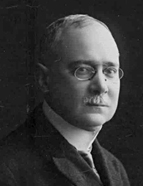

Baião ’ s works are based on an in-depth knowledge of the documentation and a wise evocation of the contexts, mentalities , and characters. They are decisive milestones in the subjects covered, such as the beginnings of expansion in the Indian Ocean, inquisitorial processes , and the work of Portuguese historians and diplomats.
However, he never went beyond a certain factualist limitation, which can be seen, for example, in his contribution to the História da Expansão Portuguesa no Mundo [History of the Portuguese expansion in the world ] , of which he was one of the editors . In the twenty or so pages dedicated to the governorship of Francisco de Almeida, Afonso de Albuquerque , and João de Castro, he limited himself to reproducing the essential facts and transcriptions from bibliographies that he himself had mastered, referring, moreover, to works of his own authorship ( História da Expansão Portuguesa no Mundo , [History of the Portuguese expansion in the world ] , vol. II, 1939, chapter IX, pp. 101-127). The same is true of the volumes of Episódios Dramático s da Inquisição Portuguesa [Dramatic Episodes of the Portuguese Inquisition] , in which he attempts to narrate the misadventures of national cultural figures with the Holy Office, without, however, going beyond a sometimes almost anecdotal record: see what he wrote in volume I about t he son of the chronicler Rui de Pina and about t he canon and poet Baltasar Estaço (Lisbon, Seara Nova , 1972 , 1 st ed. 1919, p p. 17-19 , 63 et seq. ).
Unlike other earlier Portuguese scholars and documentalists – João Pedro Ribeiro, José Agostinho de Macedo, Inocêncio Francisco da Silva , and Teófilo Braga – Baião appears not to have cultivated or enjoyed polemics, epistolary , or public conflict. He was part of a collective movement to reunite and rediscover national culture and historical science with the facts, documents and figures of the past, a movement where he seems to have integrated perfectly , apparently indifferent to the regimes that followed one another outside the archives and academia – monarchy, First Republic, military dictatorship, Estado Novo. In short, he coexisted intellectually with his academic ancestors and predecessors and with his peers and contemporaries dedicated to the same endeavours.
This work is financed by national funds through FCT - Foundation for Science and Technology, I.P, in the scope of the projects UIDB/04311/2020 and UIDP/04311/2020.
